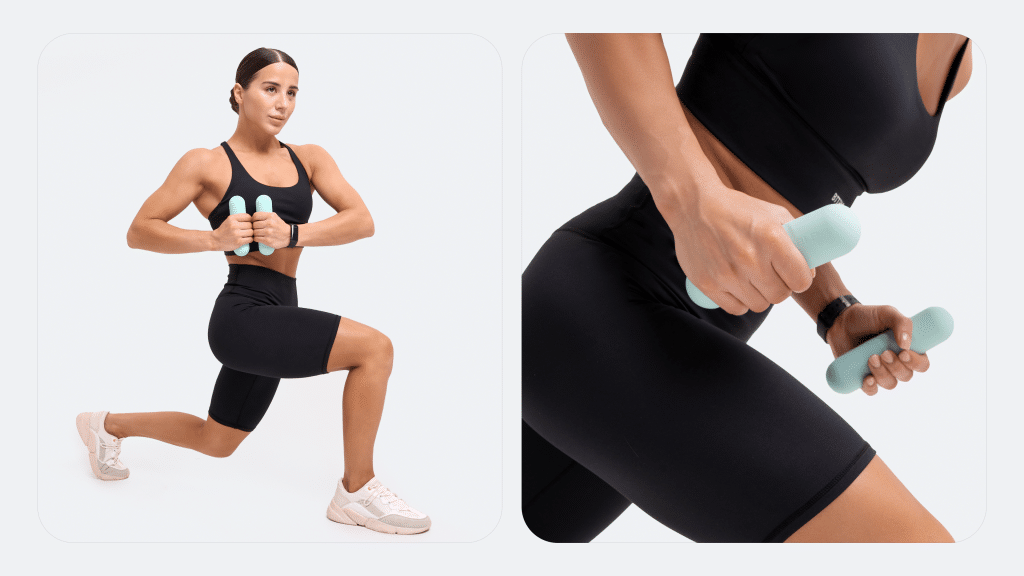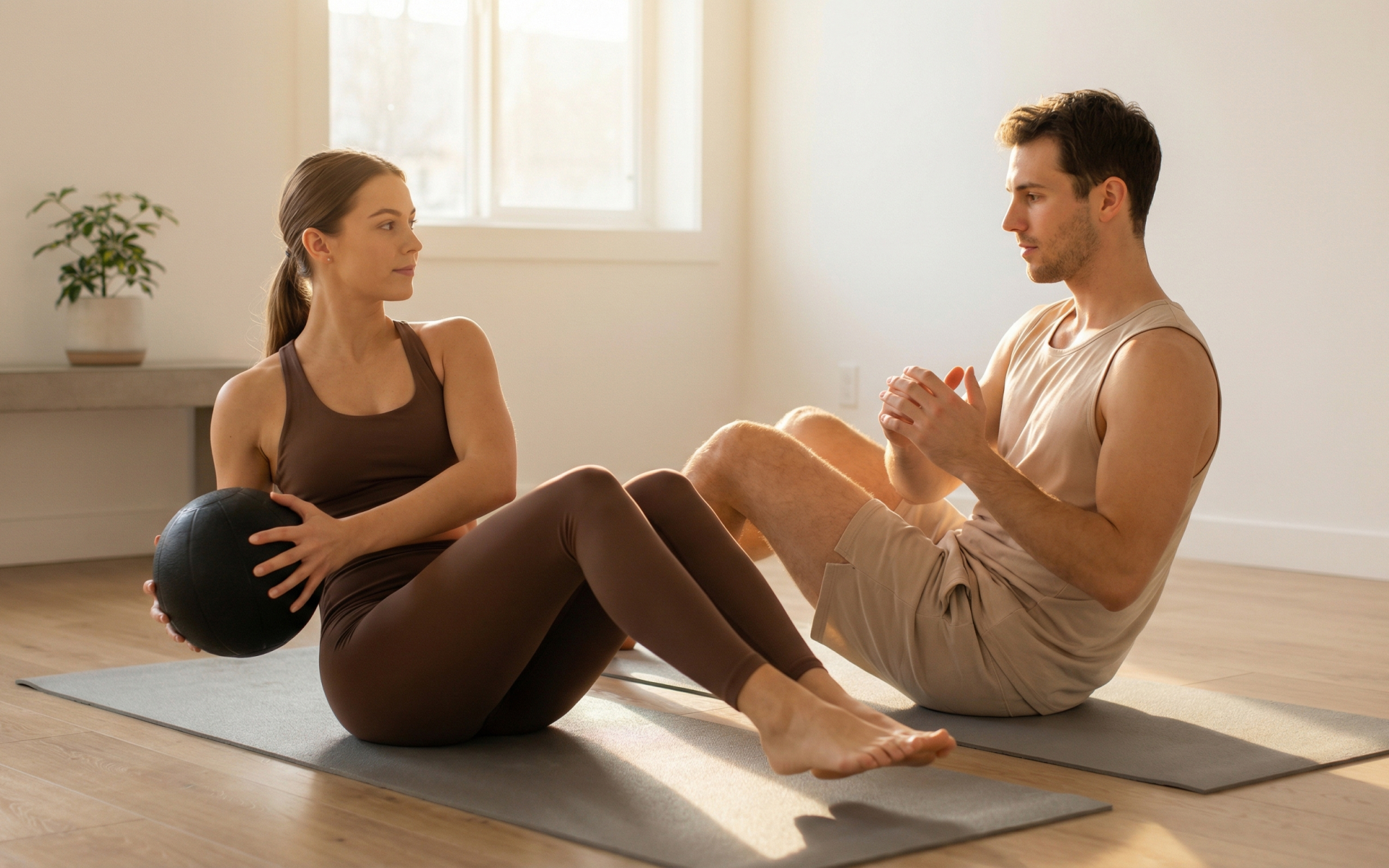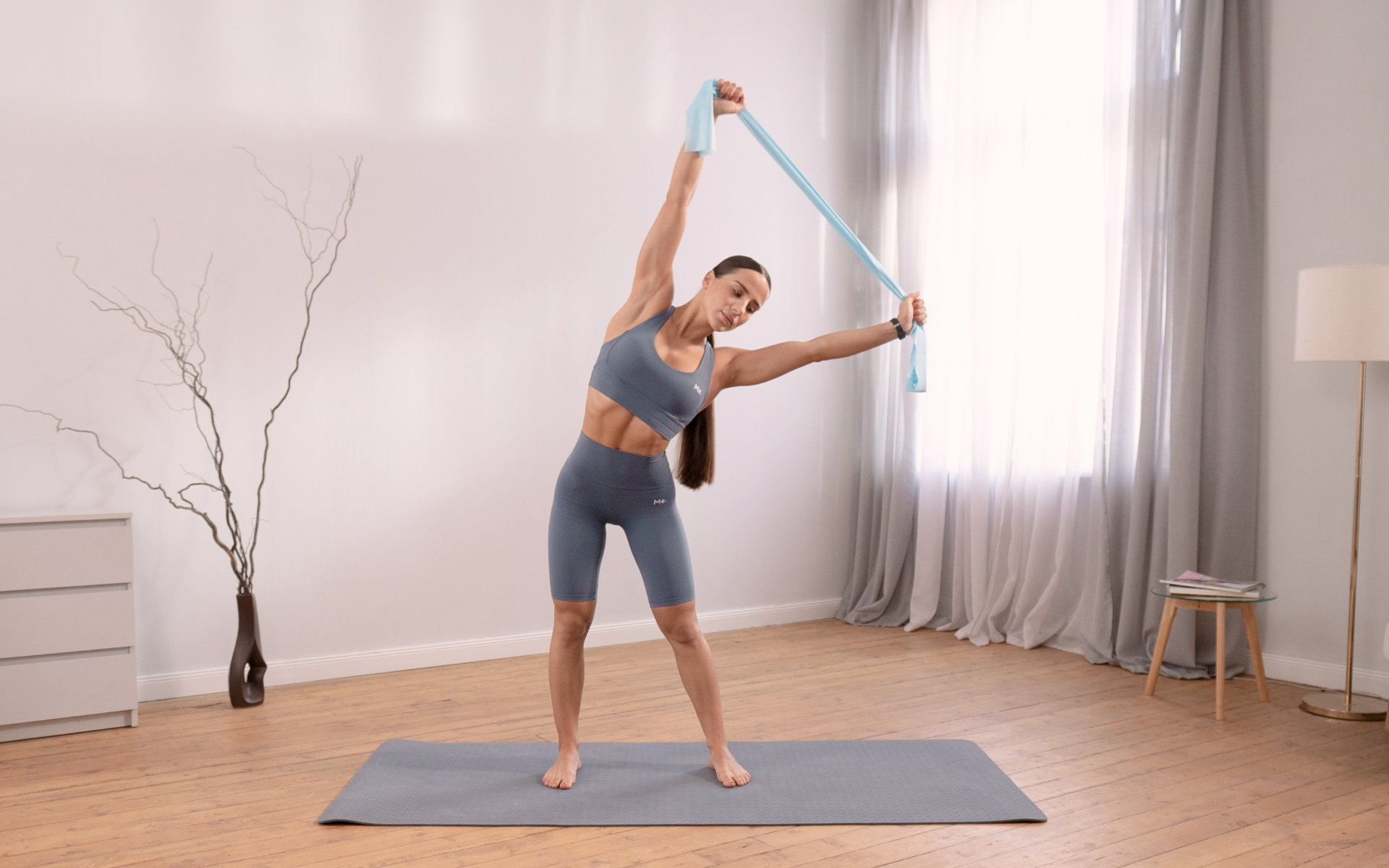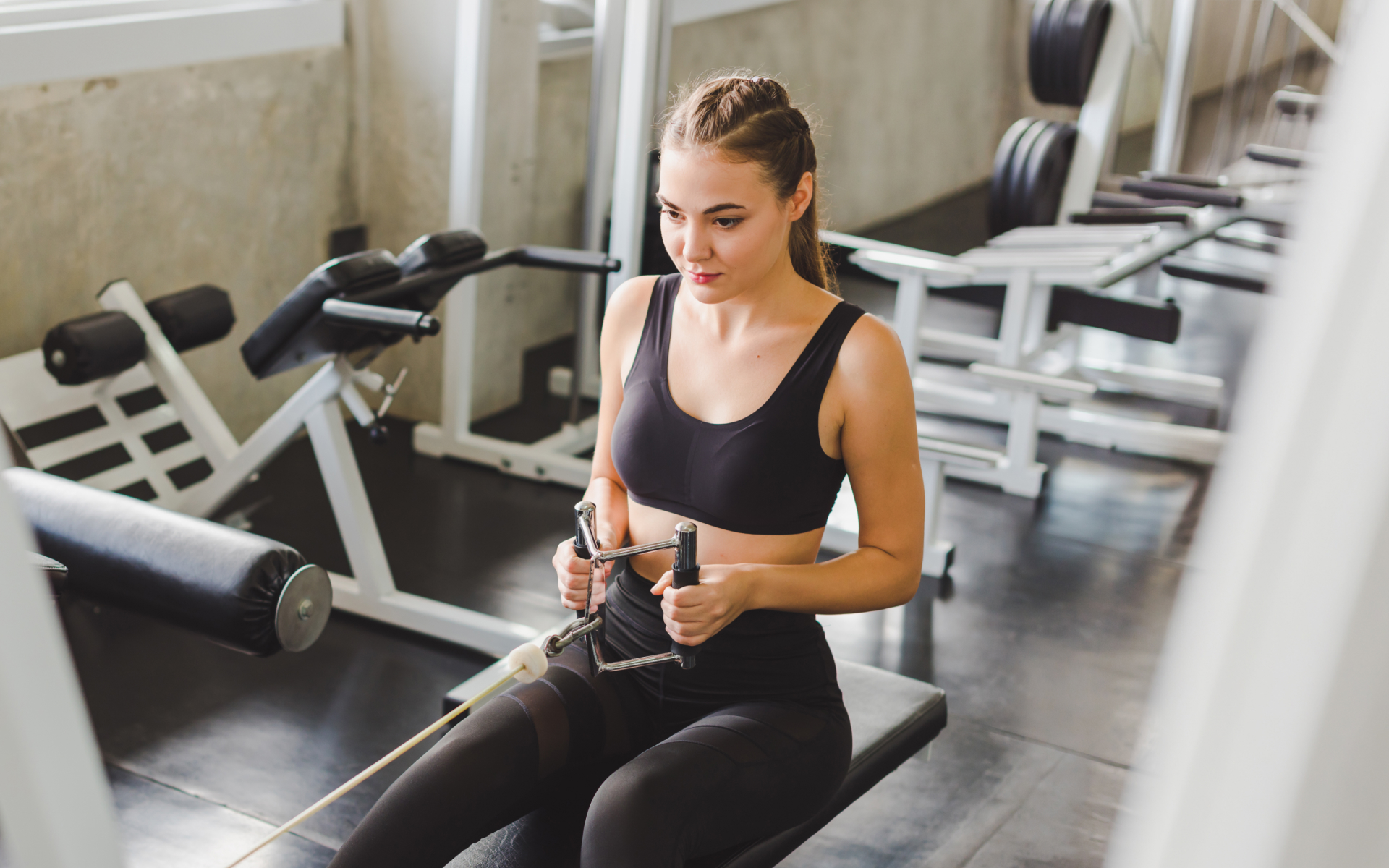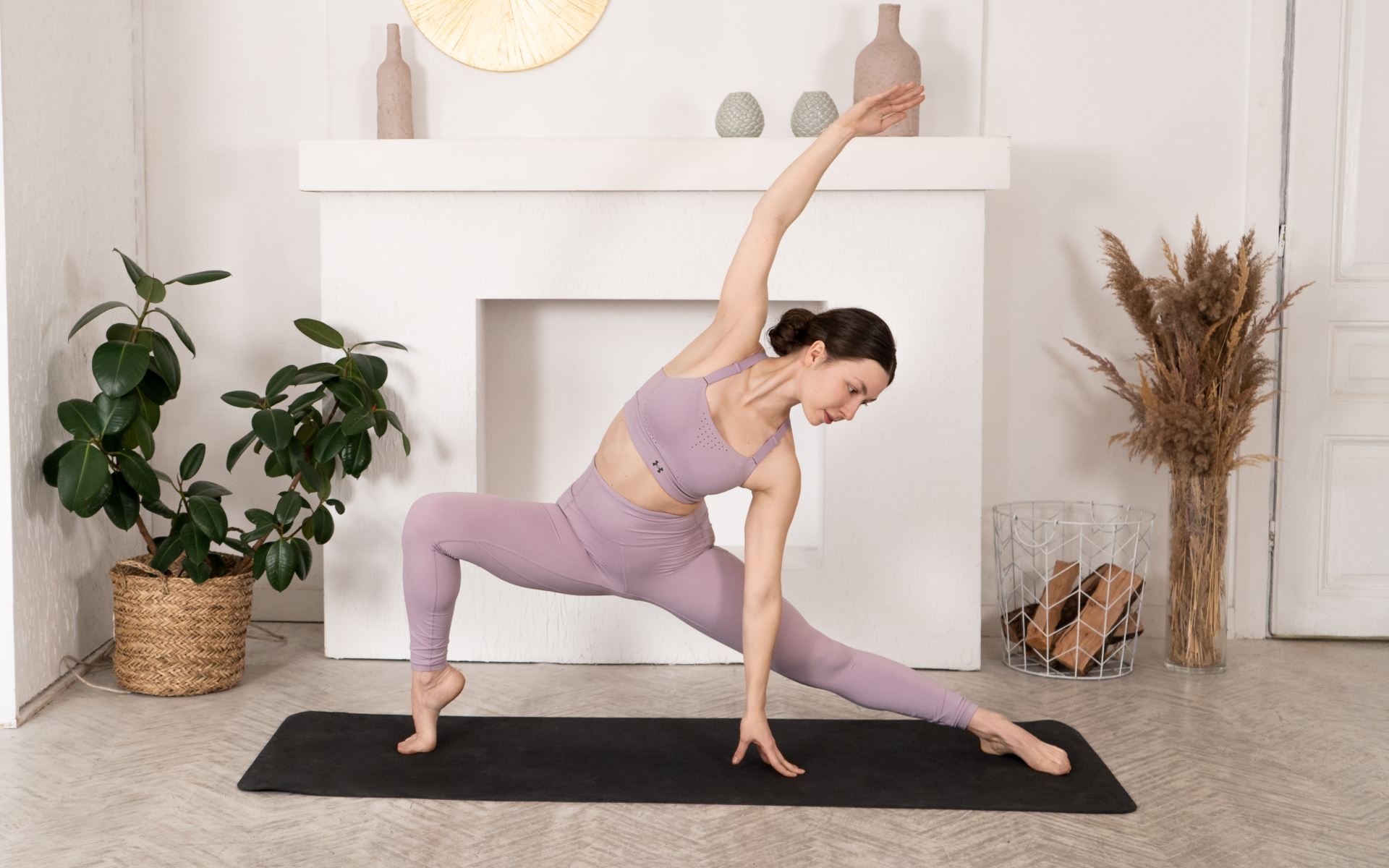When it comes to upper-body workouts, the push-ups vs. bench press debate is never-ending. On the one hand, elite and seasoned lifters believe that chest gains cannot be achieved without doing some bench press reps, while others believe that the simple and often overlooked push-up is good enough for fantastic gains. So who is correct?
In this article, we’ll try to put to rest the push-ups vs. bench press debate by looking at which muscles are activated by each workout, the benefits of each exercise, and what science and research have to say about this.
Push-Ups Vs. Bench Press Muscles Targeted
At a single simple glance, these two exercises seem to target the same set of muscles, but is this true?
Push-Ups Muscles Worked
Push-ups are an upper-body workout that primarily targets the pectoralis major, anterior and posterior deltoid, and triceps brachii muscles (1, 2), which are located in the chest, shoulders, and back of the upper arms, respectively.
Research also shows that doing more push-up variations, e.g. by placing your arms at different widths or choosing to exercise on an unstable surface, can help you target even more muscles, including the latissimus dorsi, serratus anterior, rectus femoris, and lumbar multifidus (1, 2, 3).
In short, doing push-ups helps target the muscles in your chest, shoulders, arms, back, core, and thighs.
Bench Press Muscles Worked
As with the push-up, the bench press is also an upper-body workout. Research on this exercise has shown that when engaging in this exercise, the muscles involved include the pectoralis major, triceps brachii, anterior deltoid, serratus anterior muscle, and biceps brachialis (4).
Generally, we can say that these two push-day workout exercises target the same upper-body muscles. How and where you place your arms while doing the workout determines which of these muscles will be targeted more and which ones will have less activation.
Push-Ups Vs Bench Press: Which Exercise Works Better for Chest and Arm Gains?
If you assume that a bench press workout is the best way to build muscle, think again. In fact, someone doing bench presses and another person doing push-ups are both likely to achieve similar gains – a fact that has been proven by scientific research.
- 2015
In a study published in the Journal of Strength and Conditioning Research, researchers found comparable results between push-ups and bench press. 30 study subjects were divided into three groups: a 6-repetition maximum bench press group, a 6-repetition maximum elastic band push-up group, and a control group.
The control group had no workouts to do, while the bench press and push-up groups were advised to do workouts that used the loads and variables. Researchers used an electromyography (EMG) exercise evaluation to monitor gains in the subjects.
At the end of the 5-week training period, researchers observed that both the bench press and the push-up groups had significantly similar gains, demonstrating that these two exercises provide similar muscle results (5).
The BetterMe: Health Coaching app will provide you with a host of fat-frying fitness routines that’ll scare the extra pounds away and turn your body into a masterpiece! Get your life moving in the right direction with BetterMe!
- 2018
Another study published in the same journal three years later showed similar results. In this study, researchers compared push-ups and traditional bench presses for their effects on muscle strength and thickness.
They randomly divided 23 moderately trained men (aged 23 to 30) into two groups: one for calisthenic push-ups and the other for bench presses. Both groups trained three days per week for four weeks.
At the end of the study period, researchers found no significant differences in muscle thickness between the groups, which demonstrates that push-ups match the bench press in effectiveness for gains and that this simple workout is effective for building upper-body muscle strength (6).
Read more: What Muscle Groups To Work Out Together To Prevent Overtraining And Maximize Results?
How Many Push-Ups Are Equal to a Bench Press?
The scientific research above suggests that one push-up is likely equal to one bench press.
As seen above, both the push-up and bench press target almost all the same muscles in the upper body with little variation. This can simply mean that when upper-body muscles are involved, 1 push-up equals 1 bench press and vice versa.
However, that’s not all. Studies have also shown an extremely significant association between 1 repetition max bench press and push-ups (7, 8).
Check out our article on push-ups calories burned to learn how much energy you use while doing this workout.
What Are the Benefits of Push-Ups vs Bench Press?
When it comes to the benefits of push-ups vs bench press, in terms of gains, these workouts clearly work in a similar fashion. If you’re looking to get bigger arms or chest muscles, just go with your preference as either one will likely work.
Both push-ups and bench press are forms of physical activity and research has shown that increasing the amount of physical activity you engage in in a day can help you sleep better, boost your mood, and improve your self-confidence (9, 10).
Exercise can also help with the management or prevention of the risk of chronic illnesses such as cardiovascular disease, diabetes, cancer, hypertension, obesity, depression, and osteoporosis (9, 10).
However, separately, do they have any special benefits? Yes, they do
-
Push-Ups Are Cheaper Than Bench Presses.
Push-ups are classified as calisthenics, a type of exercise that is reliant on your body weight for resistance. This means that you don’t require a gym membership to access any equipment as you would while doing bench presses.
-
It’s Easier to Do Progressive Overload with Bench Presses Than Push-Ups.
Progressive overload is a key factor for an effective way to develop an exercise program with the goal of muscle hypertrophy. This is where you gradually manipulate the sets, weight, intensity, or duration of your workout in order to constantly or progressively strain your muscles.
Progressive overload makes the muscles bigger and stronger and is a good way to avoid a plateau. When doing progressive overload, specifically through added weights, it’s easier to do so with bench presses, as you can simply add additional weight to the barbell as opposed to a push-up, where you would need to increase your total body weight or use an external weight (11, 12).
Luckily, you can always do progressive overload by increasing the number of sets, repetitions, and the duration of your workout. Progressive overload isn’t always reliant on weights alone (11, 12).
If you wish to free yourself from all the extra pounds that have been weighing you down for way too long, start using the BetterMe: Health Coaching app and overhaul your entire life!
-
Push-Ups Are Easy to Modify
This is particularly true for at-home workouts or even workouts for the elderly. As push-ups generally don’t require any added weights, it’s quite easy to modify them to work for various needs and demographics.
For example, a chair yoga elevated push-up can be a good option for beginners. You can use bench push-ups to make the exercise harder or easier by simply changing the incline and wall push-ups are a great option for beginners and seniors.
Is It Better to Lift Weights or Do Push-Ups?
It’s good to do both exercises as they’re good for you. As a calisthenic workout, push-ups largely target the upper body, in addition to the core and lower body for stability. However, even though push-ups target multiple muscles in the body, they’re not enough.
To exercise your entire body exhaustively, it’s best to add push-ups to a well-rounded weight-lifting routine. Do resistance training workouts that also directly target the lower body such as squats, deadlifts, lunges, and more.
Read more: Leg-Slimming Exercises: Tone Your Legs and Thighs with These Simple Moves
How Much of Your Body Weight Do You Lift in a Push-Up?
According to a study that was published in 2020, you lift anywhere between 62.6% to 65.1% of your body mass when doing push-ups. The range changes depending on how much you weigh, if you’ve added weights (i.e. a weighted vest) while doing the workout, and the type of push-up variation you’re doing (8).
Yes, they are. Push-ups are a compound exercise, which means that they work multiple muscle groups at the same time. The pushing motion is also a critical movement in everyday life. Think of pushing open a door. Developing the chest through a functional movement like this can make simple daily tasks even easier. Yes, they do, but that’s not all. Not only is this exercise great for shoulder and upper-body workouts, it’s also a fantastic full-body workout due to the need to stabilize the entire body when performing the exercise. Incline push-ups work the same muscles as traditional push-ups. The only difference is that the former is an easier variation that places less stress on the arms and shoulders, which makes it a good variation for beginners. Weighted push-ups are considered a closed-chain movement, while the bench press is an open-chain movement. According to a 2019 study, closed chain movements such as weighted push-ups provide greater activation of shoulder and trunk muscles (13). The incline bench press is solely a chest workout while the push-up is a full-body workout that exercises the chest muscles and those in the core and lower body. Both will work the chest in different ways, but the push-up has more activation of the core and lower body due to the need for stabilization. Are push-ups better than bench presses? Not quite. As we’ve explained above, these two exercises work the same muscles, so 1 push-up could potentially be considered to be the same as 1 bench press. So, if it comes down to which is better for upper-body strength between 100 push-ups and 100 bench presses, the answer is whichever workout you prefer. In addition, the weight used for the bench press will play a huge role in this argument. We previously stated that in a push-up, you’re lifting anywhere from 62.6% to 65.1% of your body mass, so the bench press would need to have this same weight in order to be comparable (8). If your goal is to build your upper-body muscles, then yes, push-ups are a great workout that comes in multiple variations that can help build these muscles. However, if you want to build muscle all over your body, you’ll need more than just this one exercise. This ultimately comes down to what your goals are in the gym. If you’re looking to gain strength in your chest, then yes, a push-up could be a replacement for the gym due to the many different variations you can do. However, exercise entails so much more than just working out one specific region of your body. As stressed above, push-ups aren’t enough to exhaustively work all the muscles in your body. If you want to give up the gym, you should turn to calisthenic workouts such as push-ups, pull-ups, squats, mountain climbers, lunges, etc. to exercise all the muscle groups in your body – don’t just focus on one group. As many as you’re comfortable doing without hurting yourself. There is no standard number of push-ups you should do in a day. The goal should be to do as many as you can with proper form, gradually pushing yourself to increase your strength and endurance. However, remember not to do this exercise daily as you can overtrain the targeted muscles, which can lead to overtraining syndrome. As research has shown there to be a significant correlation between both exercises, it could be inferred that engaging in bench presses can help you do push-ups.Frequently Asked Questions
Are push-ups good?
Do push-ups work the shoulders?
What muscles do incline push-ups work?
Weighted push-ups vs bench press muscle activation - which is best?
Incline bench press vs push-ups - what is the difference?
Are 100 push-ups better than 100 bench presses?
Can I build muscle with push-ups only?
Can push-ups replace the gym?
How many push-ups should I do a day?
Does bench press help with push-ups?
The Bottom Line
If you’re wondering between push-ups vs bench press in terms of getting a bigger chest, science clearly states that both workouts will likely do the same thing and produce the same results. All that remains is to choose your favorite workout and put in the work for those coveted gains.
DISCLAIMER:
This article is intended for general informational purposes only and does not serve to address individual circumstances. It is not a substitute for professional advice or help and should not be relied on for making any kind of decision-making. Any action taken as a direct or indirect result of the information in this article is entirely at your own risk and is your sole responsibility.
BetterMe, its content staff, and its medical advisors accept no responsibility for inaccuracies, errors, misstatements, inconsistencies, or omissions and specifically disclaim any liability, loss or risk, personal, professional or otherwise, which may be incurred as a consequence, directly or indirectly, of the use and/or application of any content.
You should always seek the advice of your physician or other qualified health provider with any questions you may have regarding a medical condition or your specific situation. Never disregard professional medical advice or delay seeking it because of BetterMe content. If you suspect or think you may have a medical emergency, call your doctor.
SOURCES:
- Muscle activation during push-ups performed under stable and unstable conditions (2015, pmc.ncbi.nlm.nih.gov)
- Comparison of Muscle-Activation Patterns During the Conventional Push-Up and Perfect· Pushup™ Exercises (2010, journals.lww.com)
- Effect of the push-up exercise at different palmar width on muscle activities (2016, pmc.ncbi.nlm.nih.gov)
- Muscle Activation in Traditional and Experimental Barbell Bench Press Exercise: A Potential New Tool for Fitness Maintenance (2019, pmc.ncbi.nlm.nih.gov)
- Bench Press and Push-up at Comparable Levels of Muscle Activity Results in Similar Strength Gains (2015, journals.lww.com)
- Effect of Progressive Calisthenic Push-up Training on Muscle Strength and Thickness (2018, journals.lww.com)
- Prediction of One Repetition Maximum Bench Press From Push-Ups in College-Aged Females (2011, journals.lww.com)
- Push-Ups are Able to Predict the Bench Press 1-RM and Constitute an Alternative for Measuring Maximum Upper Body Strength Based on Load-Velocity Relationships (2020, pmc.ncbi.nlm.nih.gov)
- Benefits, need and importance of daily exercise (2016, researchgate.net)
- Health Benefits of Exercise (2018, pmc.ncbi.nlm.nih.gov)
- Improving muscle size with Weider’s principle of progressive overload in non-performance athletes (2021, researchgate.net)
- Progressive overload without progressing load? The effects of load or repetition progression on muscular adaptations (2022, pmc.ncbi.nlm.nih.gov)
- Electromyography activation of shoulder and trunk muscles is greater during closed chain compared to open chain exercises (2022, sciencedirect.com)


